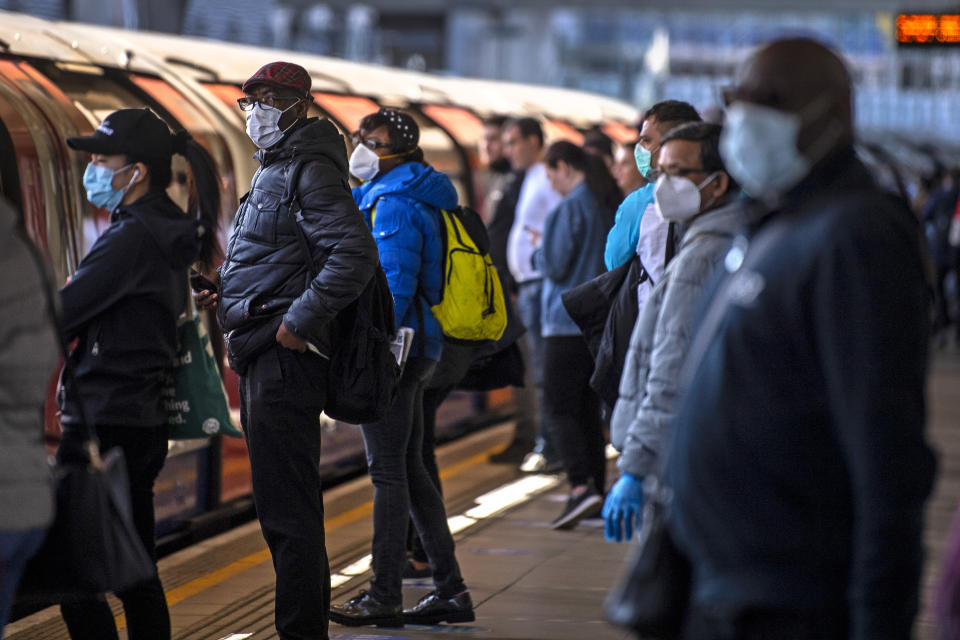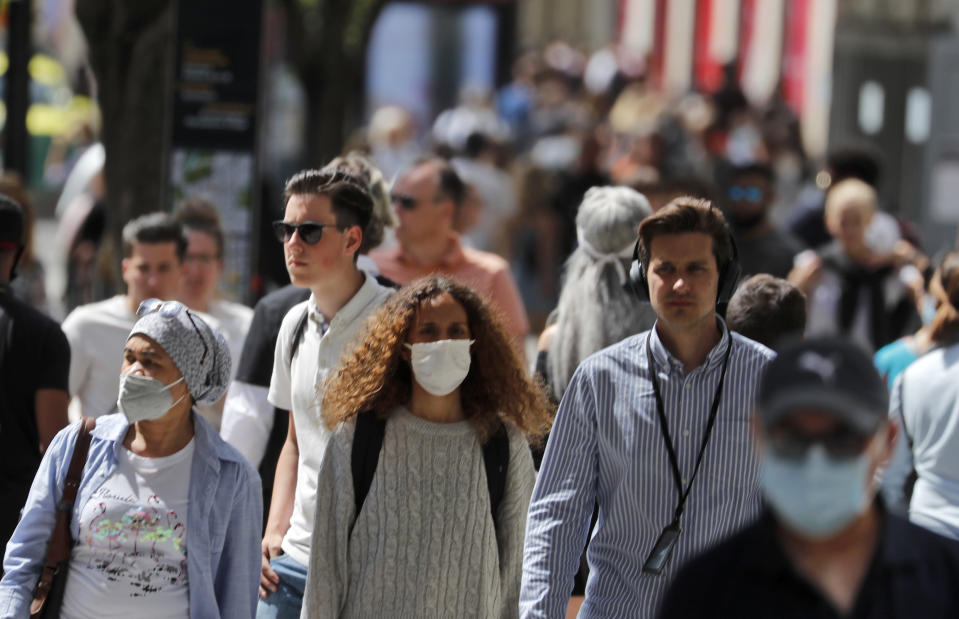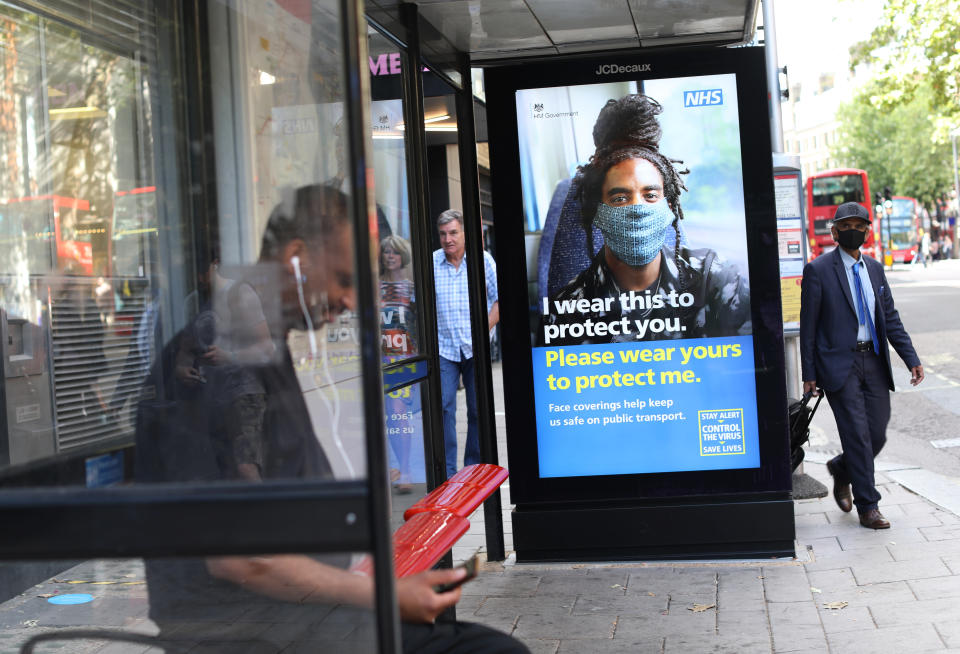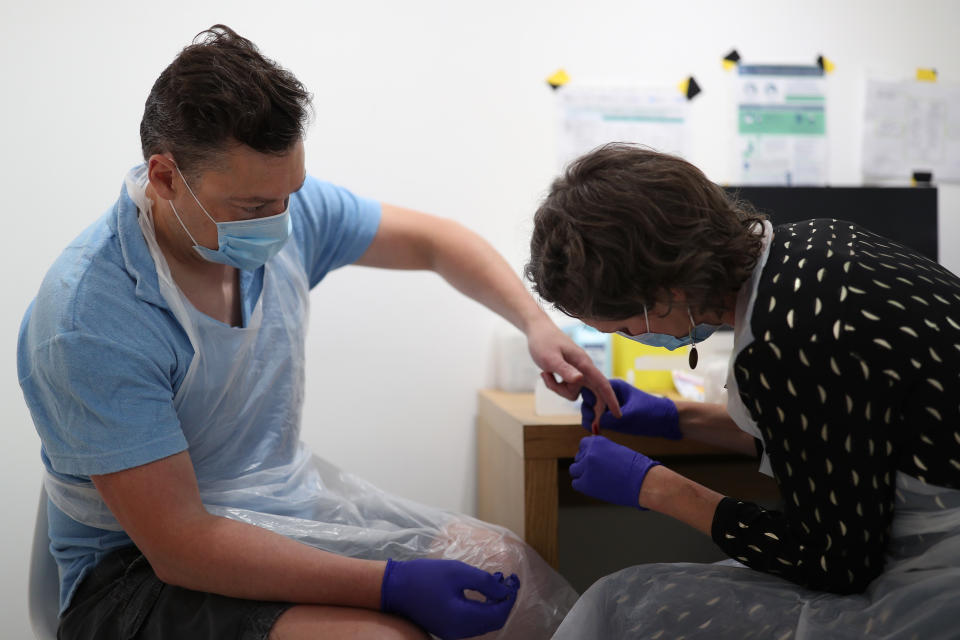Some 3.4 million people in England ‘have had coronavirus’ and it was 'widely dispersed from the start’, study suggests

Millions of people in England have already had coronavirus, and it was “widely dispersed” from the start of the outbreak, a study has suggested.
The results come from the world's largest home testing programme to find antibodies for the coronavirus, a study involving more than 100,000 volunteers and carried out by Imperial College London.
It suggests that as many as 3.4 million people have actually had the virus – far higher than the tally of 315,546 cases currently recorded by Johns Hopkins University.

‘It started in January’
The first patient to die with COVID-19 in the UK was recorded on 5 March, when it was thought there were only 90 cases in the UK.
But Helen Ward, from Imperial College London, told BBC Breakfast: “What was interesting (about the study) is that we can tell from people who reported not only having a positive test, but we also asked about their symptoms so we can actually track for most people – the 70% of people who reported symptoms – when they think they were infected.
“And it did start in January, February, and actually it started right across the country, so you can’t say that it started in London and spread out.
“Right from the beginning it was widely dispersed.”
Conducted with the use of a simple finger-prick home test said to be easy and accurate enough for mass surveillance studies, the programme suggested 6% of England's population had already been infected with COVID-19 by 13 July.
The study tracked the spread of infection across England after the pandemic's first peak, with volunteers testing themselves at home between 20 June and 13 July.
Cases breakdown
People living in London were most likely to have been infected, along with those working in care homes and health care, people from black, Asian and other minority ethnic groups, and people living in larger households.
The programme suggested a total of 13% of people living in London had COVID-19 antibodies, compared with less than 3% in the south west of England.
People working in care homes (16%) and health care (12%) returned far higher results than people who were not key workers, at 5%.

The study found 17% of black volunteers had antibodies, the categories of Asian and "other" ethnic minorities had 12% each. The figure among white volunteers was only 5%.
People aged from 18-34 showed the highest incidence of antibodies, at 8%, while over-65s had the lowest rate at just 3%.
Volunteers in the most deprived areas of the country were slightly more likely to have antibodies than those in the wealthiest areas, at 7% compared with 5%, while those in households of more than six or seven people (12% and 13%) were more likely to have had COVID-19 than those in single or two-person households (5%).

Smokers were slightly less likely to have antibodies than non-smokers – at 3% compared with 5% –while 32% of people with antibodies had shown no symptoms, a figure which rose to 49% of those aged older than 65.
Health minister Edward Argar hailed the study as an important development in Britain's fight against the coronavirus.
But the study's authors cautioned there was still no firm evidence the presence of antibodies meant people could no be re-infected.
Coronavirus: what happened today
Click here to sign up to the latest news and information with our daily Catch-up newsletter

 Yahoo News
Yahoo News 

